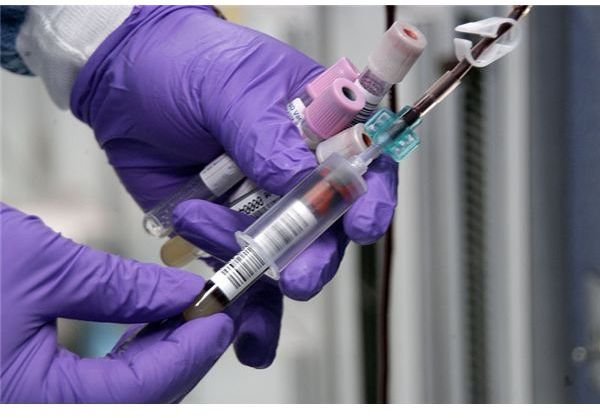The Meaning of CBC Blood Test Results
A complete blood count, CBC, is a broad screening test that examines different parts of the blood. It gives important information about the kinds and numbers of cells in the blood. A complete blood count test can be used to check for disorders including anemia, infections, and other disorders and diseases. The parts of blood that a CBC examines include red and white blood cell count, white blood cell differential, hemoglobin, hematocrit, platelet count and specific vitamin deficiencies.
When is a CBC Ordered?
A CBC blood test is very common. The reason for ordering this type of blood test can range from needing to know someone’s general health status to trying to diagnose a person with a specific disorder. When a person is experiencing unusual symptoms, a CBC can be ordered to diagnose the cause. The results of the test can help a doctor determine what problem the patient is having and what treatment needs to be provided.
What Does a CBC Test Result Mean?
The results of a CBC test can determine different things depending on what component of the blood has an increase or decrease. Certain disease states can be defined by an absolute increase or decrease in the number of a particular type of cell in the bloodstream.
If a person has an increased level of white blood cells, an infection could be present. Other causes of an increased WBC include inflammation, cancer and leukemia. A decrease in WBC can be caused by some medications, autoimmune conditions, bone marrow failure and congenital marrow aplasia.
The red blood cell count is decreased with anemia. Fluid loss such as diarrhea, dehydration, or a burn accident can cause a red blood cell count to decrease. Hemoglobin and hematocrit levels mirror the red blood cell count.
Platelet levels are decreased or increased depending on the conditions that affect platelet production. The level is decreased when greater numbers are used such as bleeding.
Inherited disorders such as Wiskott-Aldrich and Bernard-Soulier can cause the platelet level to be low. Other conditions that cause a decrease in platelet levels are pernicious anemia, hypersplenism (this condition takes too many out of circulation), leukemia, and chemotherapy. The mean platelet volume (mpv) varies with platelet production. Younger platelets are larger than older ones.
The mean corpuscular volume is increased with vitamin B12 and folate deficiencies. If a person has an iron deficiency or a disorder called thalassemia, the mean corpuscular volume will be decreased. Mean corpuscular hemoglobin levels mirror mean corpuscular volume levels. Mean corpuscular hemoglobin concentration may be decreased when MCV is decreased. The level of MCHC increases and is limited to the amount of Hgb that will fit inside a red blood cell.
Blood Test
Image Credit
WikiMedia Commons/BotMultichillT
References
Mayo Clinic: Complete Blood Count Test Results - www.mayoclinic.com/health/complete-blood-count/MY00476/DSECTION=results
University of Michigan Health System: Complete Blood Count Test - www.med.umich.edu/1libr/aha/aha_cbcdtest_crs.htm
Medicine Net: Complete Blood Count Test Results - www.medicinenet.com/complete_blood_count/page2.htm
